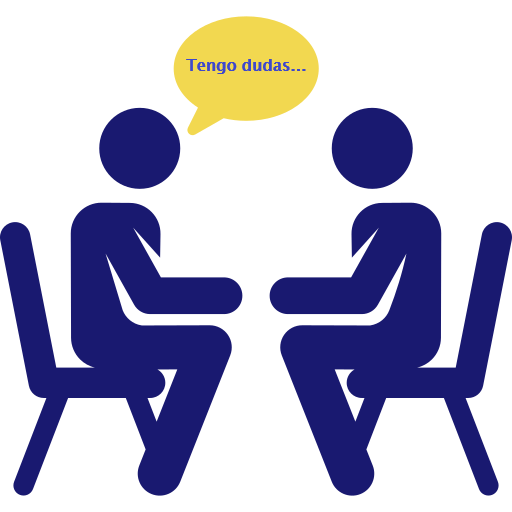If you’ve got questions about the Spanish courses at the Languages Service, about getting a Spanish language certificate, or about learning other languages, then read on and find the answers right here.
What languages can I learn at the Languages Service?
At the Languages Service, we offer classroom-based English and Spanish courses and you can book an online conversation class for English and Spanish. We also provide online courses for English, Spanish, French, Italian, Portuguese and Russian, using the Dexway platform.
Our standard courses run from the end of September through to the end of May, with some extra courses taking place over the summer. To find out the specific course dates and timetables, check out our Sharepoint site. You can also access this site via the intranet by clicking on “Aprende idiomas” (“Learn languages”).
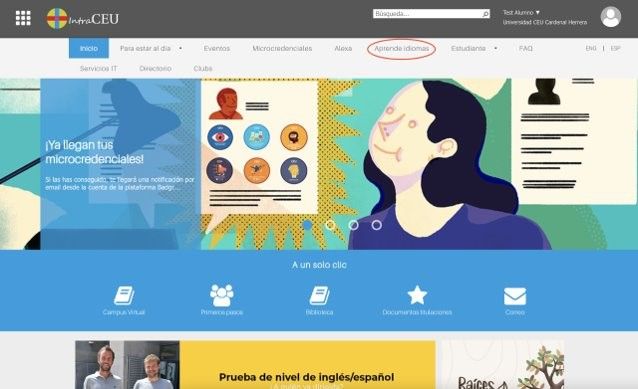
You can check out more articles on this blog and sign up for our fun extracurricular activities.
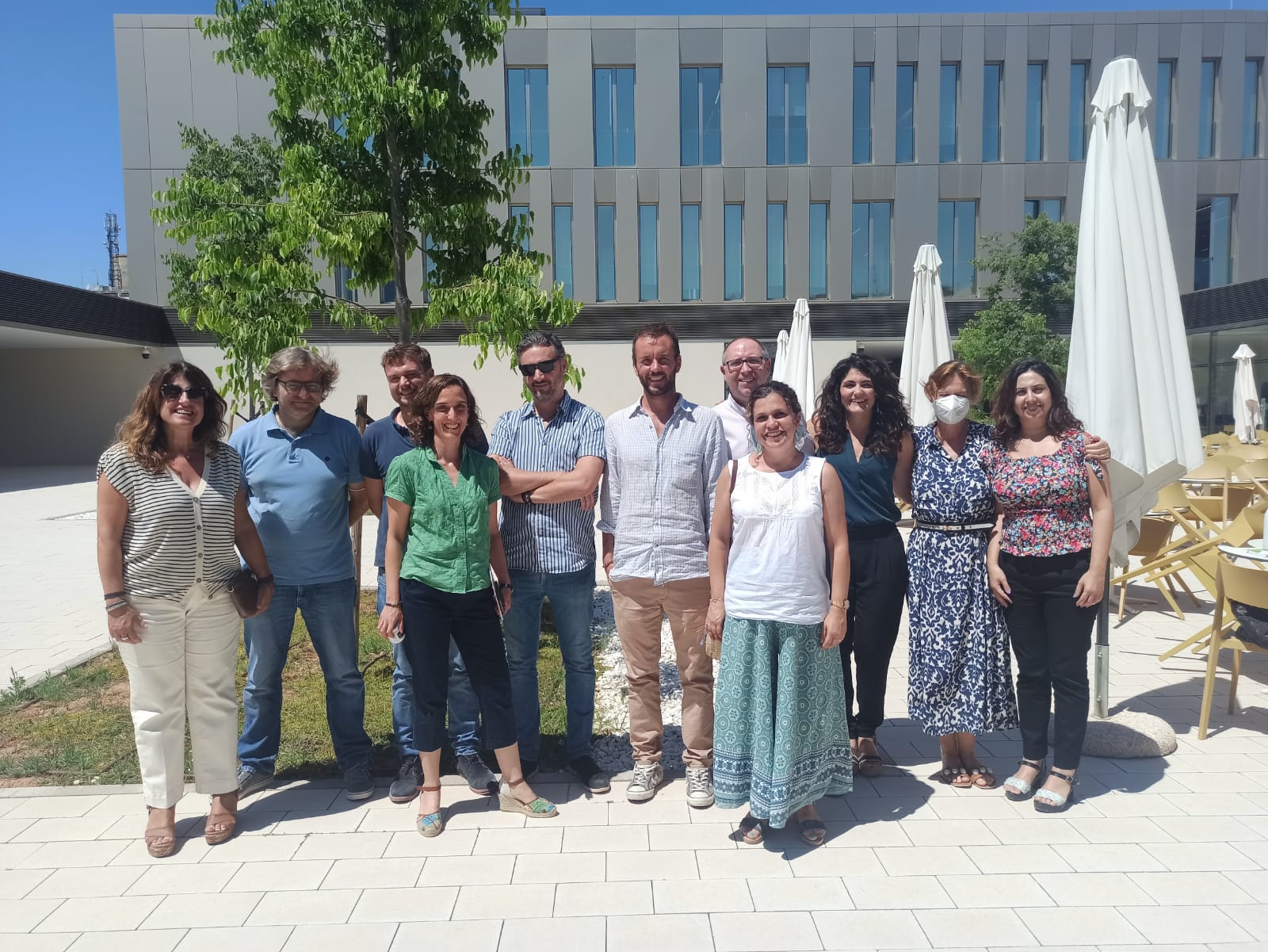
Do I need to learn Spanish for my degree?
The first thing to remember is you’re studying and living in Spain. You’ll get so much more out of your degree, the university experience and your life, in general, in Spain if you can speak Spanish to a reasonable level. The time and effort you spend learning Spanish is well worth it, so we strongly recommend setting aside some time to learning Spanish every week.
However, it’s also true that if you are enrolled on a bilingual degree and your degree requires you to undertake practical training in Spanish (e.g. Veterinary Medicine, Dentistry, Physiotherapy, etc.), then you will need to learn Spanish and, in most cases, demonstrate a B1 level of Spanish at some stage before you can graduate, but some degrees have other requirements. When exactly you will need to demonstrate that you possess the required level will depend on the degree you are studying. Ask your Spanish teacher or go to the section for your degree of the University website for more specific details.
How can I demonstrate that I speak Spanish at a B1 level or other levels?
You can learn Spanish with us in our classes and then take an exam on campus. It’s also possible to gain certificates elsewhere and then submit them to us: you can see a list of the certificates we recognize here. If you want to take an exam on campus, there are three types of exam you can take: DELE, SIELE or ECIE.
DELE (Diplomas de español como lengua extranjera) exams are set by the Instituto Cervantes and are the most widely recognized and prestigious Spanish exams in the world. You can take the DELE A2, B1 and B2 exams at the University.
The SIELE (Servicio Internacional de Evaluación de la Lengua Española) exam is also set by the Instituto Cervantes, but it is a little different from the DELE exams, as, instead of focusing on one level, it is a multi-level test. This means that candidates of different abilities do the same exam and are then classified into levels ranging from A1 to C1. Candidates sit the exam on a computer on the University campus.
You can also take the ECIE (Examen de competencias idomáticas en español) exam: this is an internal B1 Spanish exam at the University. By “internal”, we mean that it is only recognized at CEU UCH to enable students to meet the language requirement at the University – it is unlikely to be recognized as valid elsewhere.
How can I sign up for a Spanish exam? When are the next exams?
For information regarding the next DELE exams, check out this page of the University website, and you can register for one of the exams on this page. If you have any questions about this, send an email to [email protected].
You can see the next dates for the SIELE exam here. You can book a SIELE exam via the SIELE website: select CEU UCH via the drop-down menus (Spain > Valencia), on the “Find Your Center” page.
For the internal ECIE exam, ask your Spanish teacher about the next dates or check to see if there is information available on our Sharepoint site. If not, you can also send an email to [email protected], but when registration opens for the ECIE exam, an email is normally sent out with all the details to eligible students.
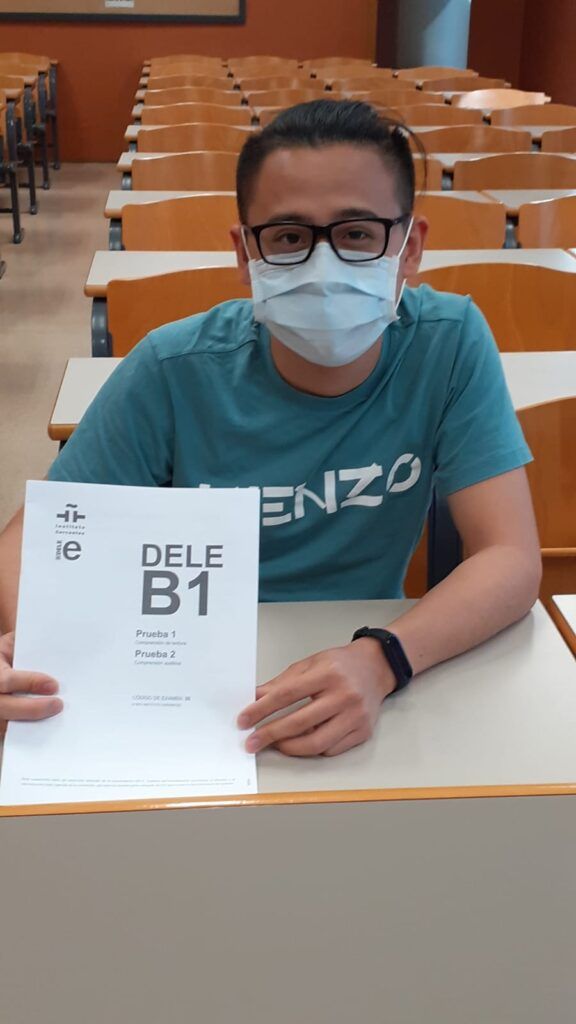
I already have a Spanish language certificate. How can I know whether it is valid for my degree’s language requirement?
You can check whether your certificate appears on the list of certificates we accept here. If it is valid, you can submit it for recognition here.
Can I get credits for attending language courses?
For some degrees, it is possible to gain credit recognition for attending our Spanish or English language courses. This can vary depending on which degree you are on – ask about this at your faculty’s secretary’s office.
What is Dexway?
Dexway is our online language-learning platform. You can use it to learn English, Spanish, French, Italian, German, Portuguese or Russian at your own pace. If you’d like a licence, it costs €25. You can sign up for Dexway via the intranet. Select “Servicio de Idiomas” (or “Languages Service”) in the top-left hand menu, then “matrícula” and then Dexway from the list of language courses. You can also check out the instructions in the presentation which appears on the homepage of our Sharepoint site.

Then choose “Matrícula” and search for “cursos idiomas online Dexway”. If you have any problems signing up, write to [email protected].
If I have a question about the Languages Service, should I go to the office in person?
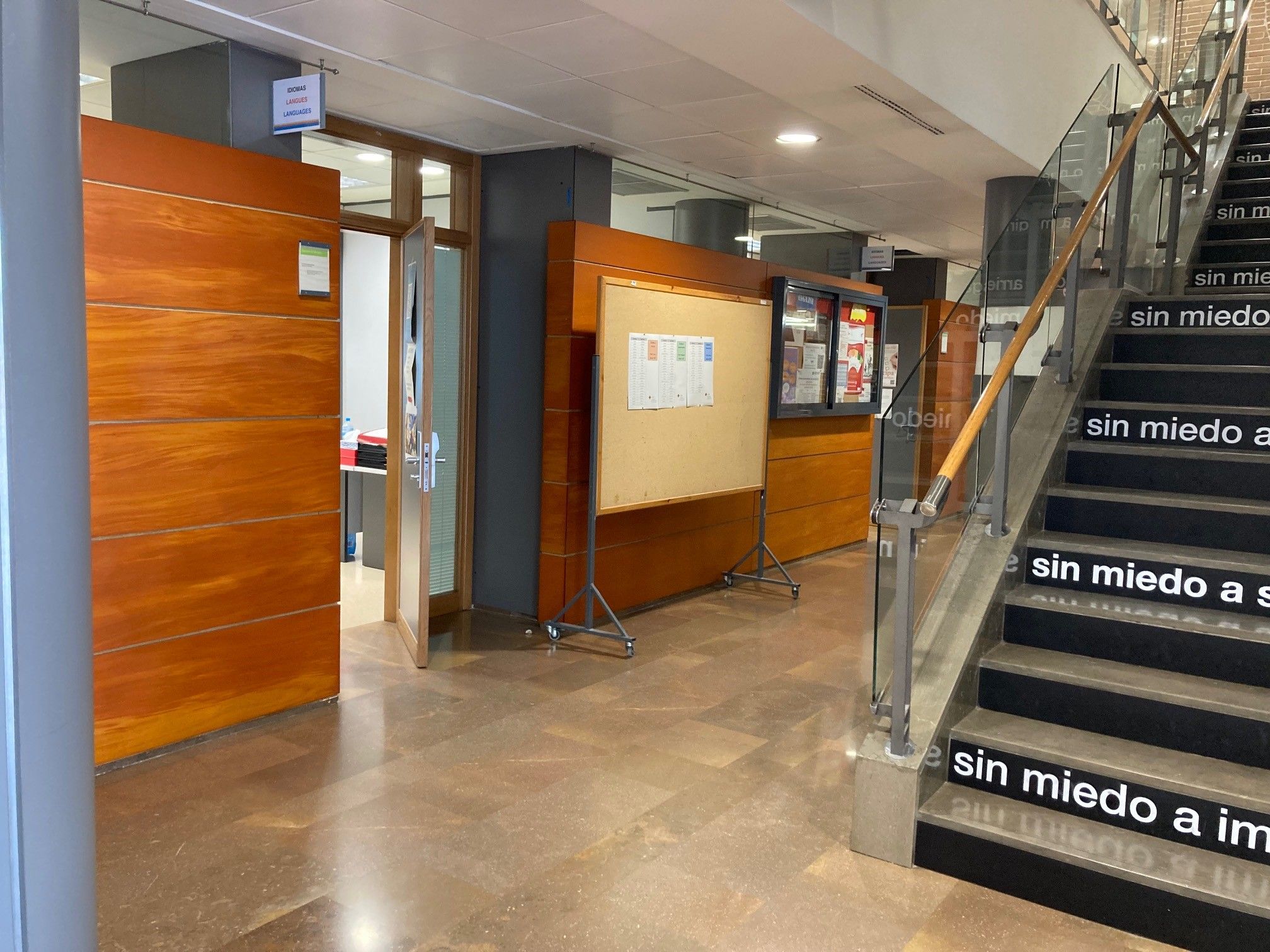
The staff of the Languages Service will be delighted to help you with any queries you might have either in person at our office or online – but you don’t have to come to our office if that’s not convenient.
If you have a general question that this article doesn’t clear up, visit our Sharepoint site or join our Helpdesk on Teams and post a message. You can also write to us at [email protected]. If your question is specifically about getting a certificate recognized, write to [email protected]. You can even book an online appointment with a member of the Languages Service and speak to them via Teams.
What English courses are there?
We offer in-person B1 and B2 English courses, free of charge, which run from September to May. We also offer courses to prepare for the C1 Advanced exam and some language support classes for those who aren’t ready to begin a B1 course. You can also book a conversation session with our teachers.
Another option available to you is our online platform Dexway: you can use it to learn English, Spanish and five more languages at your own pace.
How can I book a conversation session?
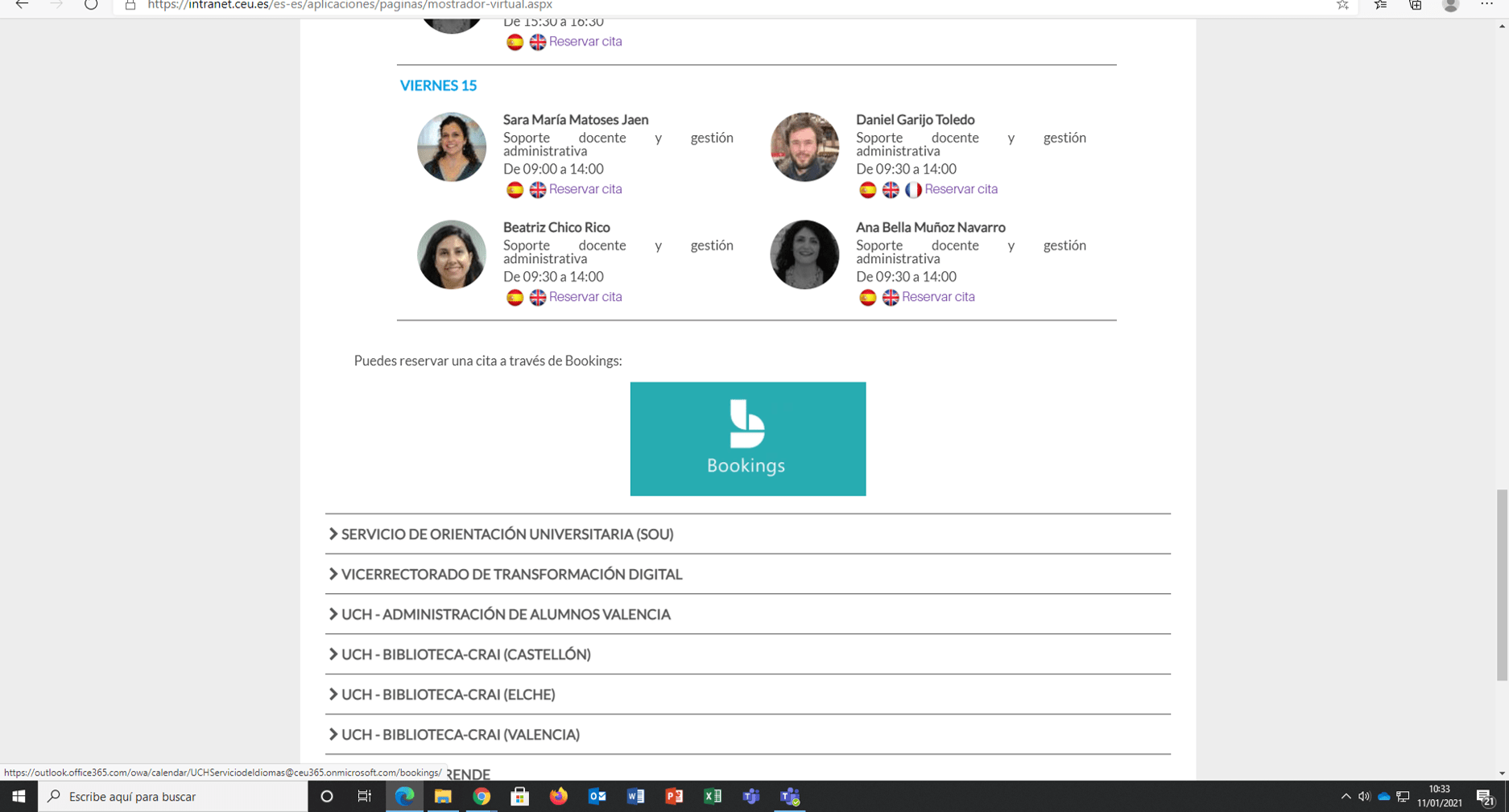
It’s easy. You can do it via the intranet (Languages Service > Bookings), or via a link the right-hand side of our Sharepoint site or simply via this link.
What English exams can I do at the University?
The Languages Service works closely with Lenguas Vivas to offer you Cambridge Assessment English exams on the University campus: you can take the B2 First, C1 Advanced and Linguaskill exams right here at the University. Sign up for an exam here.
You can also submit other types of certificate to us to fulfil the language requirement for your degree (a B2 English certificate for most students). You can see the list of certificates we recognize here.
What’s the difference between B1 and B2?
B1 and B2 refer to different levels of skill in a language, as defined by the Common European Framework of Reference for Languages (CEFR). Both B1 and B2 are intermediate (i.e. between basic and advanced) levels within this framework, but B2 is the higher level – upper intermediate, in fact. To give you a rough idea, we could say that B1 is the level you need to get by in most situations while travelling in a country in which people speak the target language. In contrast, a minimum of a B2 level is advisable if you’re going to spend a longer period of time in that country, while studying or working, for example – in this case, you’ll probably encounter more varied and demanding communicative situations. The framework also identifies two levels above B2: C1 and C2.
What about timetables for the courses?
The course timetables are generally published on the Language Service noticeboards in mid-September or the beginning of February. They are also available on our Sharepoint site.
For our special summer courses, write to [email protected]
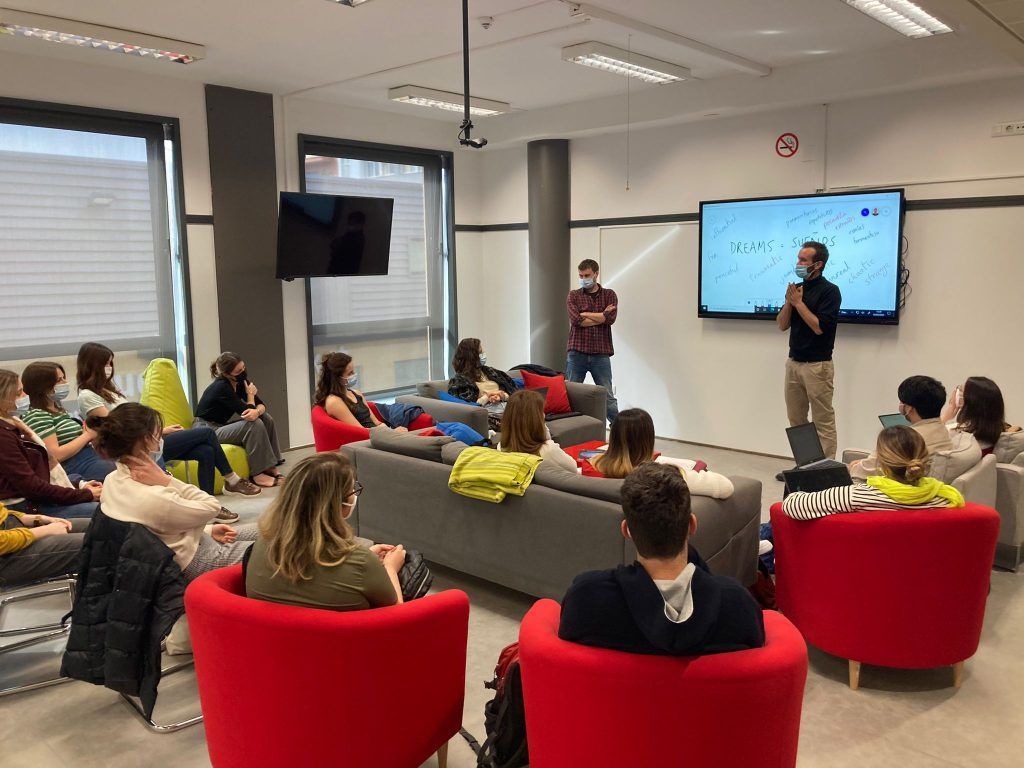
How can I know what level I have in Spanish or English?
There are different ways that you can find out what level you have, but the best way is to take the level test on our Sharepoint site.
You can also:
- Pop into the Language Service and speak to one of our teachers in person if they are available, and they can guide you towards the right course.
- Sign up for Dexway via the intranet and do the level test on the Dexway platform.
- Try this English level test from Cambridge or this Spanish level test from the Instituto Cervantes.
Are there any other language activities apart from the courses?
At the Languages Service, we have a whole programme of language and cultural activities, all in the most international space in the whole of the Unviersity: The HUB 101.
For example, we organize a language exchange, or tándem, at least once a month. By attending the tándem, you can learn Spanish while you help other students with their English, or teach them another language you speak such as French or Chinese. Or the other way around! It’s a great way to learn and have fun!
Other activities include the literature clubs, talks about language, languages, and other cultures – and even Chinese calligraphy workshops!
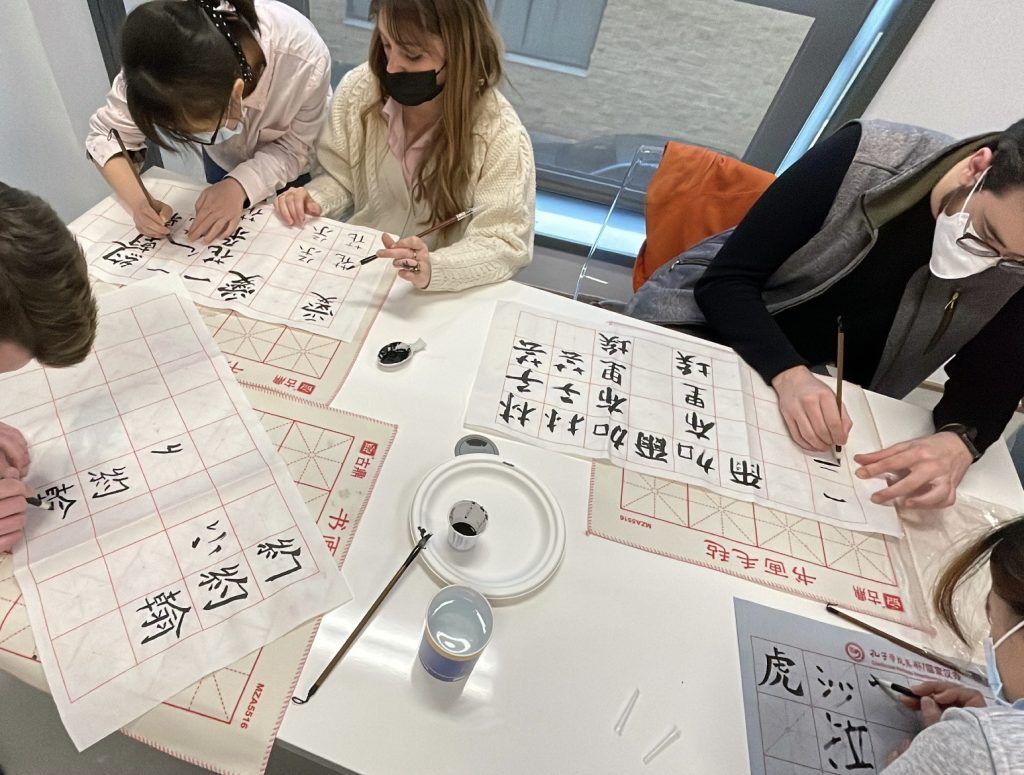
I’d like to take part in the Erasmus scheme and study in another country. What do I have to do?
The first thing to do is to read all the information about the Erasmus programme on the University website and contact the International Relations Office for any general queries about the Erasmus programme. If you want to submit a language certificate to the Languages Servuce to participate in the Erasmus scheme or if you want to take our Erasmus language tests, you must have already submitted your application to the International Relations Office.
I’ve sent in my application for the Erasmus scheme. Now what do I need to do?
The language requirements vary depending on the destination you have requested.
| Language | Level required |
| English | B2 |
| French | B1 |
| German | B1 |
| Italian | B1 |
| Portuguese | A1 |
If you already have a valid language certificate for the required level, then you should submit this certificate via the appropriate form.
If you don’t have a valid certificate, then you will have to take the appropriate language test set by the Languages Service. Contact [email protected] if you have any questions about this test. It is important to remember that the application process for the Erasmus scheme and the process for the fulfilment of the language requirement for your degree are completely independent of each other. So, if you have, for example, a B2 English certificate, then you may well need to submit this twice: once for the Erasmus scheme and again for the fulfilment of the language requirement if a B2 in English is required for your degree.

